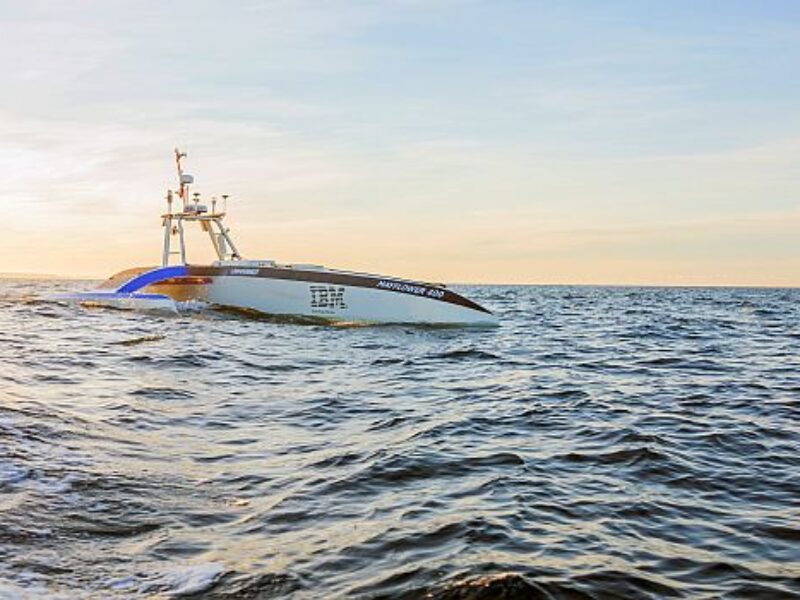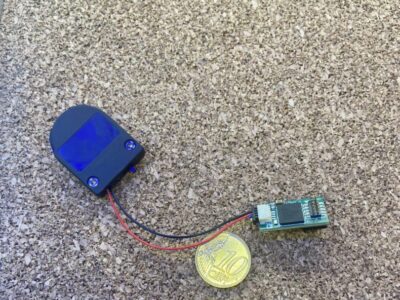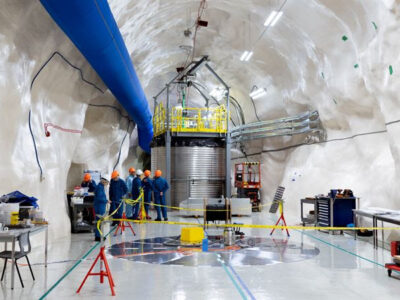
Autonomous ship begins transatlantic crossing attempt
Originally scheduled to launch last year, the pilotless robotic ship is now in international waters as it attempts to cross the Atlantic ocean and reach the United States, say the organizations – a journey that is expected to take approximately three weeks. If successful, the ship is expected to land in Provincetown, MA, then make its way to the U.S. port of Plymouth.
The ship’s journey was originally scheduled as part of 400th-anniversary commemorations of the original Mayflower’s voyage carrying Pilgrim settlers to New England, but was delayed by both the coronavirus pandemic and more recently by bad weather. The Mayflower project aims to aid the development of fully autonomous AI systems and applications for use in a variety of industries such as shipping, oil and gas, telecommunications, security and defence, fishing and aquaculture.
The 50-ft research vessel, which has no human crew or captain on board, is powered by a solar-powered hybrid electric motor and uses IBM’s automation, AI. and edge computing technologies to assess its status, environment, and mission and make decisions about what to do next while at sea. The ship’s progress can be viewed by anyone via the mission dashboard, which includes live video, maps and data streaming.
The mission – a result of years of work and a global collaboration between marine research non-profit ProMare, IBM and dozens of partners from across industry and academia – is designed to forge a cost-effective and flexible platform for gathering data about the ocean. The autonomous ship will help scientists gather the data they need to advance understanding of key global issues affecting ocean health including ocean acidification, microplastics and marine mammal conservation.
One of the new pieces of scientific equipment on MAS is Hypertaste – an AI-assisted “electronic tongue” developed by IBM Research. The size and shape of a citrus slice, the e-tongue was developed as a fast and portable way of “fingerprinting” complex liquids. On the MAS, says IBM, its aim will be to verify the health of the ocean and its role in climate change.
“After all,” says IBM Research Editorial Lead Katia Moskvitch, “the ocean absorbs about a third of all carbon dioxide released into the atmosphere. Continuously increasing levels of CO2 lead to ocean acidification, with profound implications for marine life and the ocean carbon cycle. HyperTaste will analyze all of these factors.”
Other partner companies and organizations on the Mayflower Project include Iridium, Thales, Red Hat, The Weather Company, Vodafone, Nvidia, Intellisense Systems, and National Instruments, among others.
Related articles:
Mayflower autonomous ship launches
Intelligent ship navigation startup launches with safety as goal
AI ‘captain’ of autonomous ship to begin sea trials
Intel, Rolls-Royce partner on autonomous shipping
Autonomous ship guidance system combines probabilistic modeling, AI
 If you enjoyed this article, you will like the following ones: don't miss them by subscribing to :
eeNews on Google News
If you enjoyed this article, you will like the following ones: don't miss them by subscribing to :
eeNews on Google News




